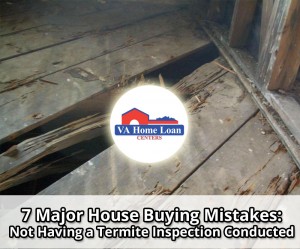 In 2004, the American rate of homeownership hit a record high of 69.2 percent. A decade later the rate has dropped to its lowest number in nearly two decades. The housing crisis of 2008 saw inordinate numbers of foreclosures, and with the post-recession economic climate still impacting the market, renting has become the preferred method of occupancy for many. The job market influences avenues of American life ranging from housing to socio-political issues, demographics and norms are constantly changing among the American public. Despite these trending changes, homeownership is still the constant cornerstone of what American culture embodies. According to The New American Consumer, 70 percent of adults aged 18-29, who do not own a home cite a desire to become homeowners within the next decade. A 2012 survey conducted by TD Bank found similar results, 84 percent of respondents aged 18-34 maintain a desire to become homeowners and 59 percent called owning a home “is vital in defining the American Dream.
In 2004, the American rate of homeownership hit a record high of 69.2 percent. A decade later the rate has dropped to its lowest number in nearly two decades. The housing crisis of 2008 saw inordinate numbers of foreclosures, and with the post-recession economic climate still impacting the market, renting has become the preferred method of occupancy for many. The job market influences avenues of American life ranging from housing to socio-political issues, demographics and norms are constantly changing among the American public. Despite these trending changes, homeownership is still the constant cornerstone of what American culture embodies. According to The New American Consumer, 70 percent of adults aged 18-29, who do not own a home cite a desire to become homeowners within the next decade. A 2012 survey conducted by TD Bank found similar results, 84 percent of respondents aged 18-34 maintain a desire to become homeowners and 59 percent called owning a home “is vital in defining the American Dream.
A healthy economy means a robust housing market. A home purchase is one of the most meaningful decisions a person will make in their life. Approaching this type of transaction should be done methodically and thoroughly. Diligence is crucial in avoiding a financial disaster. Below is a list of major house-buying mistakes consumers often make. Avoiding these mistakes can mean the difference between purchasing a lemon or a kingdom.
Listed below are the 7 Major House Buying Mistakes:
- Mistake One: Skipping the Home Inspection
- Mistake Two: Not Having a Termite Inspection Conducted
- Mistake Three: Not Checking the Property for Previous Insurance Claims
- Mistake Four: Not Setting Aside Money for Maintenance Expenses
- Mistake Five: Overlooking the Presence of Permits that Could Impact the Homes Desirability
- Mistake Six: Making significant financial changes prior to closing
- Mistake Seven: Forgetting About the Little Details
Mistake One: Skipping the Home Inspection
Yes, a home inspection could cost an additional $400 or more, but that is nothing compared to the potential damages you will have to deal with if the house is not thoroughly analyzed and investigated prior to purchasing. Major leaks, shingle damage, poor plumbing, and construction carried out without proper permits are nightmares to deal with, and the expenses incurred are going to have you wondering “why didn’t I just get a home inspection.” Purchases made without a home inspection are almost always the result of agent negligence or buyer indifference.
The home inspection process will check for exterior wall damage, foundation cracks and settling issues, roof damage, poor installation, cracked vents, and gutter conditions. The interior inspection will examine the plumbing, electrical, bathroom, garage, heating and cooling conditions as well as for fire safety.
The importance of hiring a home inspector prior to purchase cannot be emphasized enough. The majority of real estate agents advise their clients to do so.
For VA housing loan recipients, remember, the VA appraisal although is a type of home inspection is not as thorough as a standard home inspection conducted by an independent home inspector.
Mistake Two: Not Having a Termite Inspection Conducted
Similar to not having a home inspection, skipping the termite inspection is potentially a recipe for disaster. A buyer’s expense, termite inspections shine light on potential home problems or dangers. Termites live in colonies that can range from multiple hundred to multiple million members. Resulting from their wood-eating behaviors, termites can do significant damage to unprotected buildings. Without an inspection, termite colonies can go undetected for a long time. After entering the structure, cloth, carpets, and cellulosic materials are subject to damage,
Mistake Three: Not Checking the Property for Previous Insurance Claims
Homeowners can be denied insurance policies because of previous insurance claims. The scenario plays out like this:
Homeowner discovers faulty bathroom sink, decides to fix it himself after calling insurance because the policy has a $400 deductible, thus he/she does not completely file a claim. During the sale of the property, the seller discloses to the buyer the sinks pipe had previously burst and that the insurance had paid for that repair, but he/she does not disclose sink problem. When you go to purchase a policy, you are now denied qualifying for it because two claims have been filed in the previous three years, (the pipe and sink).
Because the seller had originally called the insurance provider about the sink, the call was marked as closed with no payment; this is standard procedure for insurance companies.
Even if something this extreme does not happen, there is a strong chance that your homeowner insurance premium will raise if the house you now occupy has a history of problems. The best way to determine the insurance history on the property is to look at a CLUE report or home sellers disclosure report; talk to your REALTOR® to view these.
Mistake Four: Not Setting Aside Money for Maintenance Expenses
Many people make the mistake of viewing a home purchase as a simple replacement of a rental payment with a mortgage payment; this couldn’t be further from the truth. Maintenance costs, higher utilities and property taxes are now going to be part of your monthly expenses. The cost of upkeep can sneak up on you, it is critical to put extra money aside every month for the potential cost of maintenance related expenses. Ask the homeowner about their typical utility costs and maintenance related expenditures. Consider budgeting enough funds (one quarter of one percent up to one percent of the purchase price) for annual maintenance costs.
Mistake Five: Overlooking the Presence of Permits that Could Impact the Homes Desirability
Maybe you fell in love with the home because of the second-floor view of the park. What if new construction is going to occur that will block that view, or remove the park altogether. How would the presence of this construction alter your original feelings on the home? Find out if any construction is scheduled around the home and how this could impact the desirability of the home.
Mistake Six: Making significant financial changes prior to closing
Do not purchase any big ticket items before you close; better yet do not purchase anything prior to closing. A car purchase, new credit card debt or a job change can negatively impact your ability to receive mortgage approval. Your mortgage is contingent on the information you originally provided your lender, changing circumstances can undue qualifying.
Mistake Seven: Forgetting About the Little Details
Buying a home is an incredibly arduous process. Because of the sheer volume of information taken in, it is easy to overlook the little details, do not make the common home buying mistake of not changing your utilities to the new address, disconnecting your internet provider and updating your address for bills. This is an easy way to waste money.
To apply for a VA loan complete the form below or call 888-573-4496 option 1 to speak with a VA loan expert.
To obtain real estate representation, complete the form below. VA Home Loan Centers authorized buyers agents will represent you at no cost. To find out more, call 888-573-4496 option 2.
Apply For Va Home Loan Assistance
